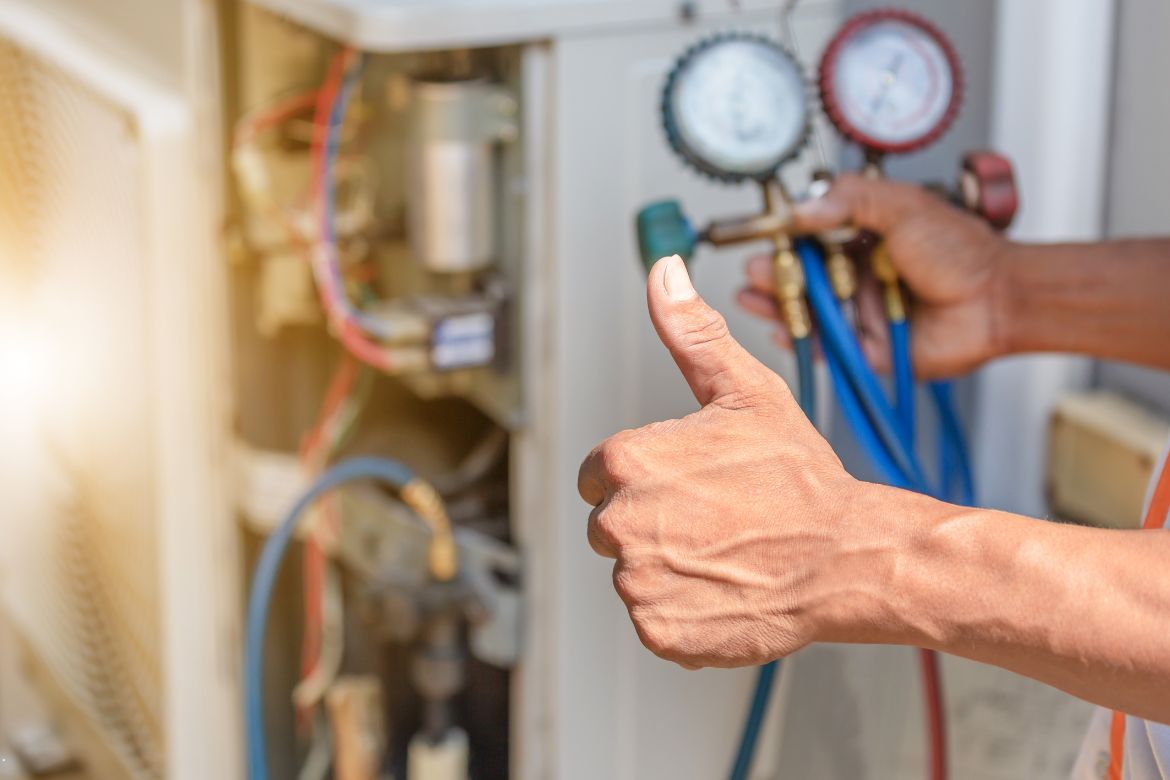Many homeowners know that HVAC maintenance can keep their heating systems working well during the cold winter months, but what are the differences between professional and DIY maintenance?
Professional Maintenance Services
Professional heating maintenance is conducted by trained HVAC technicians who have the expertise and tools to thoroughly inspect, clean, and tune up your heating system. During a professional maintenance visit, the technician will:
- Inspect System Components: Technicians check critical parts like the heat exchanger, blower motor, and electrical connections for signs of wear, damage, or malfunction. They can identify potential issues that might not be obvious to the average homeowner.
- Test and Calibrate: A professional will test the system’s performance, including airflow, temperature control, and thermostat accuracy. They will calibrate the system if necessary to ensure optimal efficiency and performance.
- Clean and Lubricate Parts: Dust and debris can accumulate in your heating system over time, reducing efficiency and causing premature wear. A technician will clean components like the burner, pilot light, and air ducts, and lubricate moving parts to keep everything running smoothly.
- Check for Safety Concerns: Safety is a top priority during a professional maintenance check. The technician will inspect for potential hazards, such as gas leaks or carbon monoxide issues, ensuring your home remains safe throughout the heating season.
- Provide Expert Advice: During the visit, you can ask the technician questions about your system’s performance, energy efficiency, or any concerns you have. They can offer personalized advice and recommendations based on their inspection.
DIY Maintenance
DIY heating maintenance involves tasks that homeowners can perform on their own to keep their systems in good shape. While not as comprehensive as professional services, regular DIY maintenance can help extend the life of your heating system and maintain its efficiency. Common DIY tasks include:
- Changing the Air Filter: One of the simplest yet most effective DIY tasks is regularly changing your air filter. A clean filter improves airflow, reduces strain on the system, and enhances indoor air quality.
- Cleaning Vents and Registers: Dust and debris can accumulate in your vents and registers, blocking airflow and reducing efficiency. Regularly vacuum and wipe down these areas to keep the air moving freely throughout your home.
- Checking the Thermostat: Ensure your thermostat is working correctly and set to the desired temperature. For programmable or smart thermostats, review the settings to optimize energy savings during different times of the day.
- Inspecting for Obstructions: Keep the area around your furnace or heating system clear of clutter, furniture, and other objects that might obstruct airflow or pose a fire hazard.
How to Decide if You Should Schedule Professional Heating Services
Deciding between DIY and professional heating maintenance depends on several factors:
- System Age and Condition: If your heating system is older or has had issues in the past, professional maintenance is recommended to catch potential problems early. Newer systems might only need basic DIY tasks, but professional check-ups can still ensure everything is functioning correctly.
- Comfort Level with DIY Tasks: Some homeowners are comfortable performing basic maintenance tasks, while others prefer to leave it to the professionals. If you’re unsure about handling any aspect of your system, it’s best to schedule a professional service.
- Time and Convenience: Professional maintenance takes the burden off your shoulders, allowing you to enjoy peace of mind knowing your system has been thoroughly inspected and serviced. If you have a busy schedule or lack the time for DIY tasks, professional services offer a convenient solution.
- Safety Concerns: Professional technicians have the knowledge to identify and address safety concerns, such as gas leaks or carbon monoxide risks, that might not be evident to a homeowner. If you have any doubts about the safety of your system, it’s wise to call in an expert.

